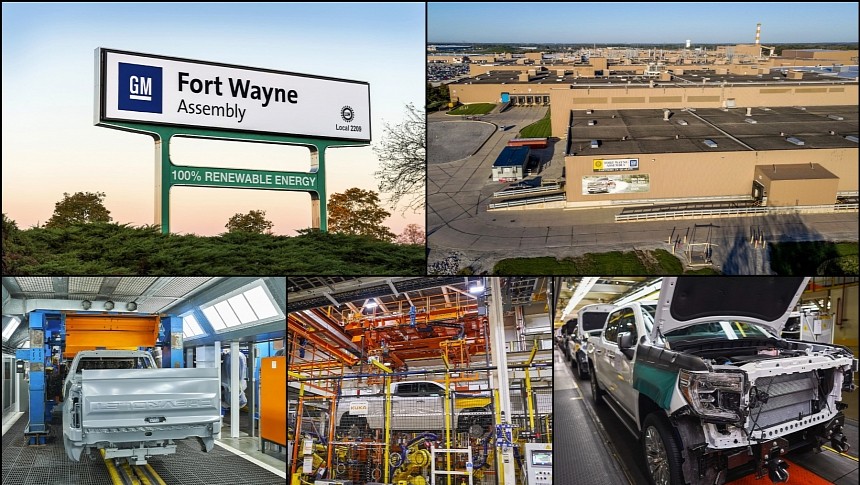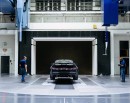Contrary to the predictions and expectations, vehicle demand in the United States is on the rise with an increase in sales at auto dealers, according to the US Commerce Department.
This increase in sales showcases that the spending power of consumers is strong and on the path to recovery following both the pandemic and a wave of inflation. This is at least partly true, as the report shows an increase in the purchase of other goods as well. On top of that, we've all seen the incredible markups some vehicles demand, so it's clear that the purchasing power is there.
Paul Jacobson, the Chief Financial Officer of General Motors, and John Lawler, who shares the same position at Ford, also seem excited about this growth. Both mentioned the strength of the consumer as a primary driving force behind the increase in sales.
These comments from the two officials are understandably upbeat, as they come after a period of uncertainty and instability. At the start of 2023, economists and even some executives in the car industry, like Tesla CEO Elon Musk, had predicted a major recession, which did not happen in the end.
However, every coin has two sides, and this situation is no exception. Due to the grim economic forecast, most auto manufacturers chose to drop the prices of their vehicles in order to encourage sales.
And it worked, as showcased by the increase in demand for new vehicles. But this kind of strategy is inherently flawed, as it's unsustainable. Keeping prices low means cutting production costs, which implies that plenty of jobs will be lost, in turn causing overall purchasing power to drop.
This idea is not speculatory, as the cost reduction strategies implemented by both Ford and GM previously had caused thousands of layoffs. And due to electric vehicles, which are less profitable in the short term than their combustion counterparts, cost cuts are now more important.
Ford is a prominent automaker, and it's currently trying to reduce the manufacturing cost of its second generation EVs by as much as half. GM shares a similar focus, with a lofty goal of reducing its annual operating and manufacturing costs by a whopping two billion dollars.
And since we mentioned Tesla earlier, a partnership is in the works between the EV-only carmaker and both GM and Ford. The goal of this partnership is for these two titans of the American auto industry to adopt Tesla's EV charging network and its NACS (North American Charging Standard).
And the crazy part is that this would not even require an additional investment from Ford, according to John Lawler. This solution solves two problems - it provides customers with a better experience as they will have access to over 12,000 charging stations from 2024 onward, and it will also reduce overall costs.
Paul Jacobson, the Chief Financial Officer of General Motors, and John Lawler, who shares the same position at Ford, also seem excited about this growth. Both mentioned the strength of the consumer as a primary driving force behind the increase in sales.
These comments from the two officials are understandably upbeat, as they come after a period of uncertainty and instability. At the start of 2023, economists and even some executives in the car industry, like Tesla CEO Elon Musk, had predicted a major recession, which did not happen in the end.
However, every coin has two sides, and this situation is no exception. Due to the grim economic forecast, most auto manufacturers chose to drop the prices of their vehicles in order to encourage sales.
And it worked, as showcased by the increase in demand for new vehicles. But this kind of strategy is inherently flawed, as it's unsustainable. Keeping prices low means cutting production costs, which implies that plenty of jobs will be lost, in turn causing overall purchasing power to drop.
This idea is not speculatory, as the cost reduction strategies implemented by both Ford and GM previously had caused thousands of layoffs. And due to electric vehicles, which are less profitable in the short term than their combustion counterparts, cost cuts are now more important.
Ford is a prominent automaker, and it's currently trying to reduce the manufacturing cost of its second generation EVs by as much as half. GM shares a similar focus, with a lofty goal of reducing its annual operating and manufacturing costs by a whopping two billion dollars.
And since we mentioned Tesla earlier, a partnership is in the works between the EV-only carmaker and both GM and Ford. The goal of this partnership is for these two titans of the American auto industry to adopt Tesla's EV charging network and its NACS (North American Charging Standard).
And the crazy part is that this would not even require an additional investment from Ford, according to John Lawler. This solution solves two problems - it provides customers with a better experience as they will have access to over 12,000 charging stations from 2024 onward, and it will also reduce overall costs.






